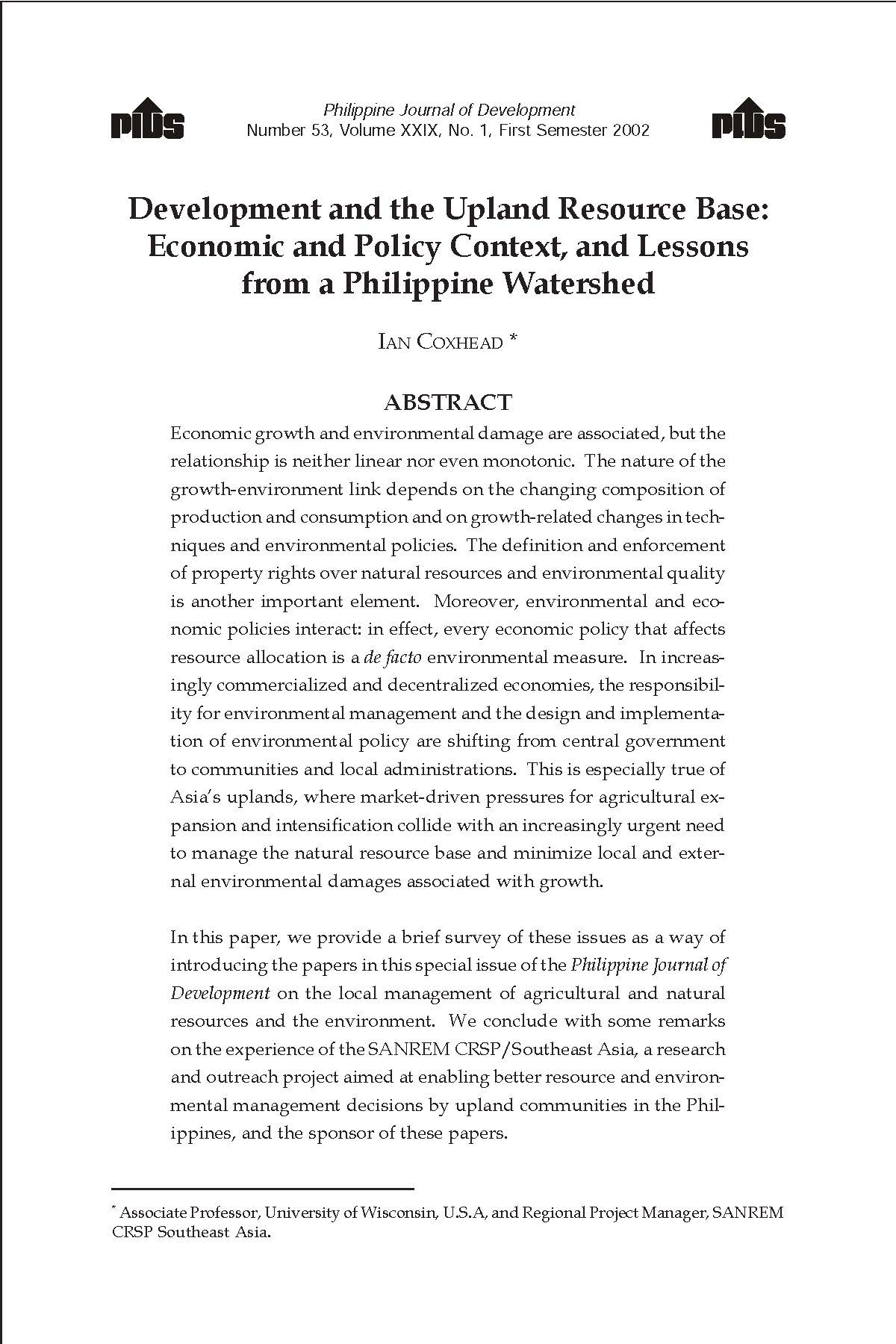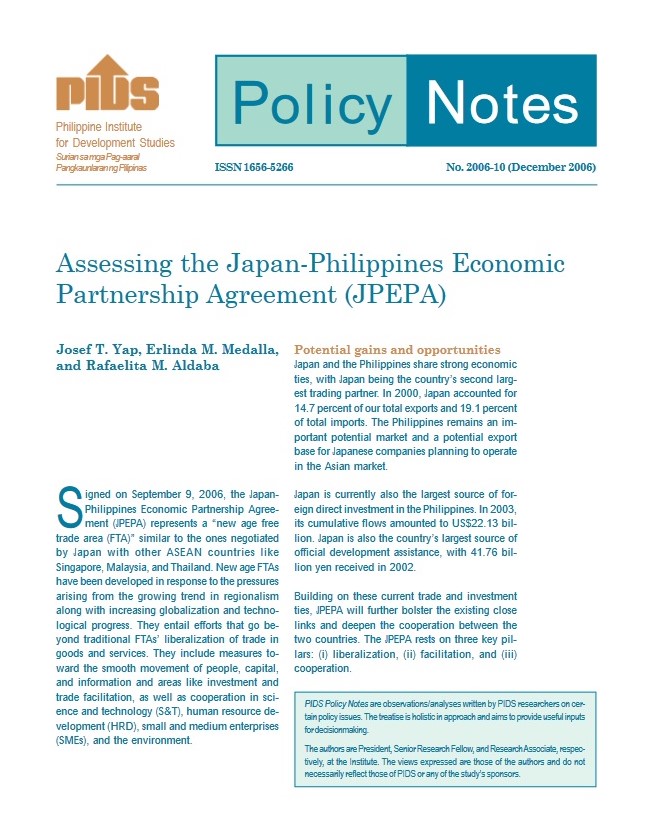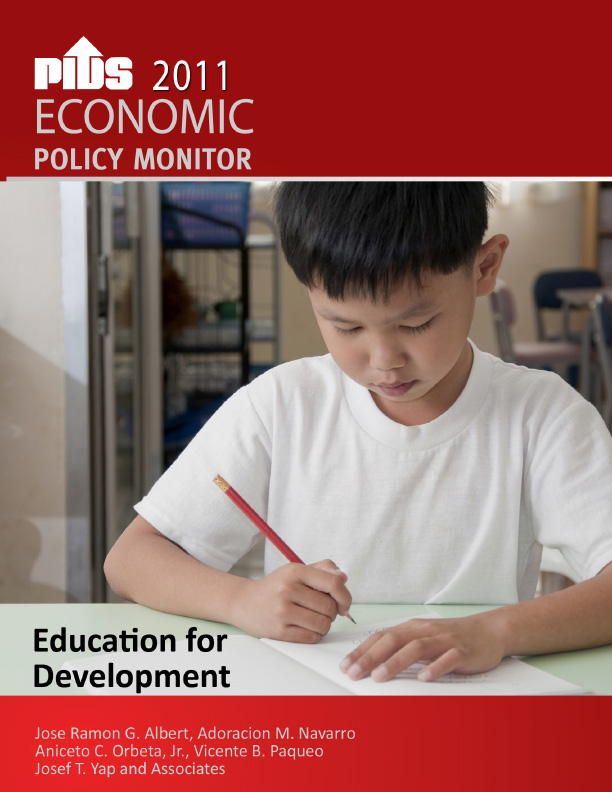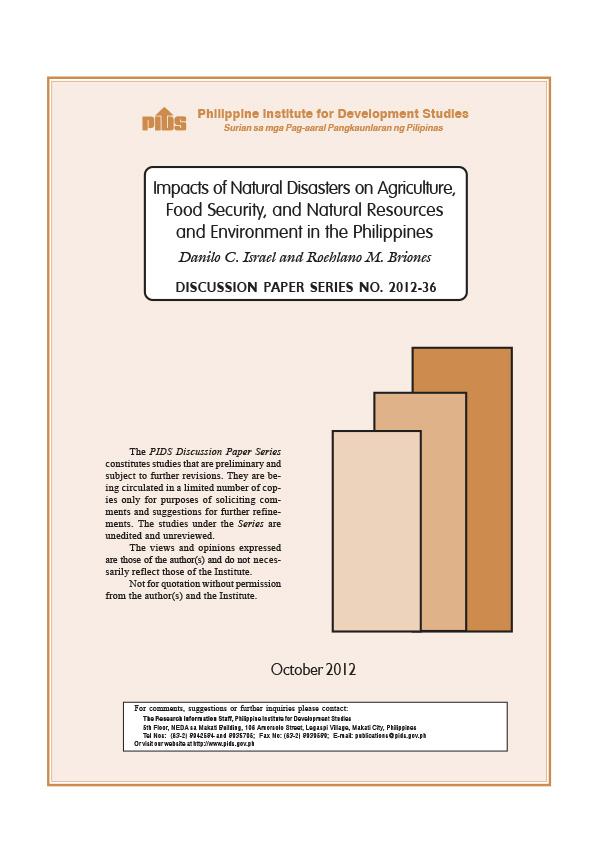Economic growth and environmental damage are associated, but the relationship is neither linear nor even monotonic. The nature of the growth-environment link depends on the changing composition of production and consumption and on growth-related changes in techniques and environmental policies. The definition and enforcement of property rights over natural resources and environmental quality is another important element. Moreover, environmental and economic policies interact: in effect, every economic policy that affects resource allocation is a de facto environmental measure. In increasingly commercialized and decentralized economies, the responsibility for environmental management and the design and implementation of environmental policy are shifting from central government to communities and local administrations. This is especially true of Asia's uplands, where market-driven pressures for agricultural expansion and intensification collide with an increasingly urgent need to manage the natural resource base and minimize local and external environmental damages associated with growth. This paper provides a brief survey of these issues as a way of introducing the papers in this special issue of the Philippine Journal of Development on the local management of agricultural and natural resources and the environment. It concludes with some remarks on the experience of the SANREM-CRSP/Southeat Asia, a research and outreach project aimed at enabling better resource and environmental management decisions by upland communities in the Philippines, and the sponsor of these papers.
Citations
This publication has been cited 2 times
- Coxhead, Ian and Bayou Demeke. 2006. Modeling spatially differentiated environmental policy in a Philippine watershed: tradeoffs between environmental protection and poverty reduction. 2006 Annual meeting, CA 21115. American Agricultural Economics Association.
- Rola, Agnes et. al. 2009. Soil conservation decisions and upland corn productivity: a Philippine case study. Asian Journal of Agriculture and Development, 6, No. 2, 1-20. Southeast Asian Regional Center for Graduate Study and Research in Agriculture (SEARCA).













